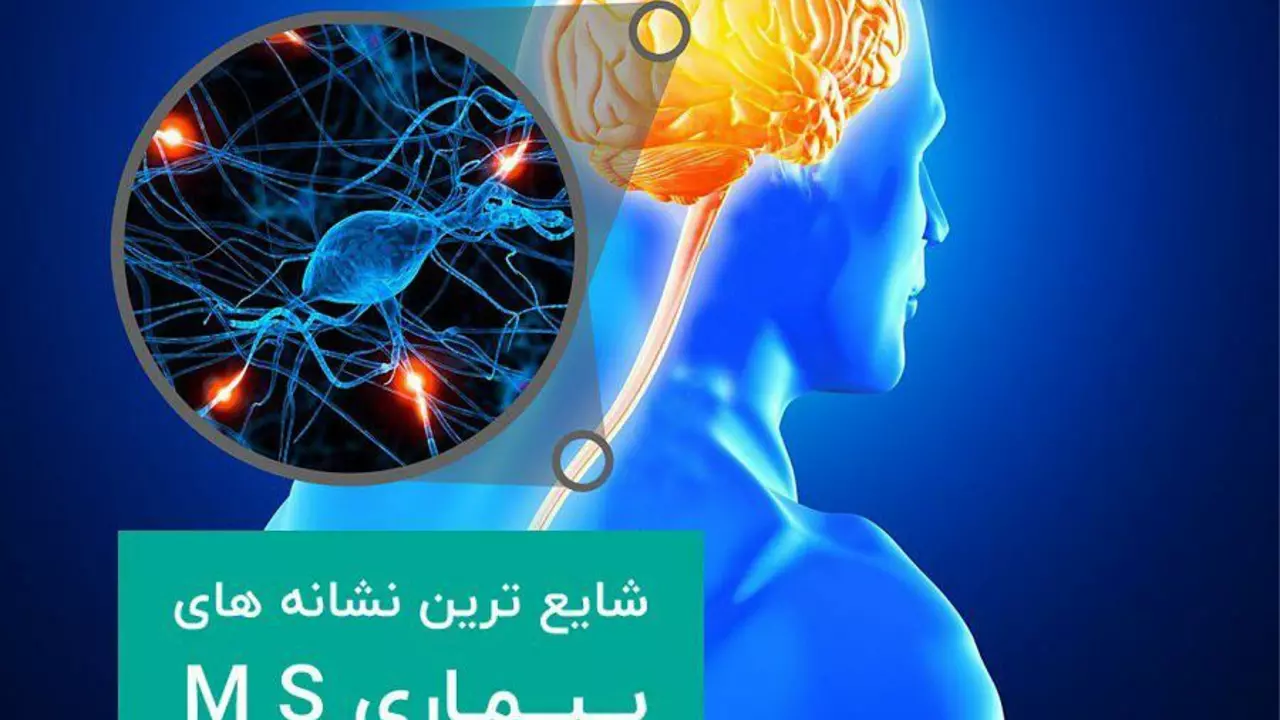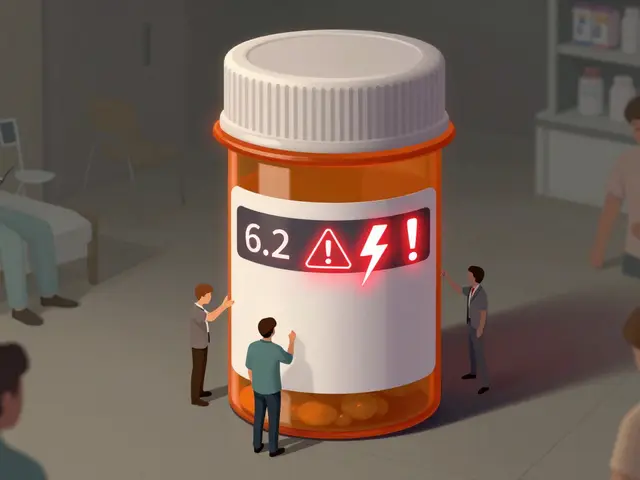 6
Jul,2023
6
Jul,2023
Understanding Muscle Spasms
Muscle spasms are an involuntary contraction of a muscle that does not relax. They are usually harmless but can be quite painful, and they often hit without any warning. Muscle spasms can occur in any muscle or group of muscles in the body. But what causes these painful contractions? The potential causes are numerous, from dehydration and nutrient deficiencies to certain neurological disorders. But one of the most complex and impactful connections is the link between muscle spasms and multiple sclerosis (MS).
The Basics of Multiple Sclerosis
MS is a debilitating disease of the central nervous system. It involves an immune-mediated process where the body's immune system attacks the protective sheath (myelin) that covers nerve fibers, causing communication problems between the brain and the rest of the body. This can lead to the degeneration or damage of the nerves themselves, a process that is currently irreversible. The symptoms of MS are varied and unpredictable, ranging from numbness and tingling to walking difficulties, muscle weakness, and spasms.
How MS Leads to Muscle Spasms
When MS damages the nerves in the spinal cord, it can disrupt the normal flow of nerve impulses that control muscle movements. This can lead to spasticity or muscle stiffness, which can cause muscle spasms. Muscle spasms are a common symptom of MS, affecting up to 80% of people with the disease. These spasms can range from mild stiffness to severe, painful, and disabling muscle contractions.
Coping with Muscle Spasms in MS
Living with muscle spasms can be challenging, but there are several ways to manage them. Physical therapy and regular exercise can help maintain muscle tone and decrease spasticity. Certain medications can also help to relax muscles and reduce the frequency and severity of muscle spasms. However, it's important to remember that everyone's experience with MS is different, and what works for one person might not work for another.
Physical Therapy and Exercise
Physical therapy and regular exercise can significantly help manage muscle spasms. A physical therapist can design a personalized exercise program to help maintain muscle tone, improve balance, and reduce fatigue. Regular stretching can also help to alleviate muscle stiffness and prevent spasms. Yoga, swimming, and other low-impact exercises can also be beneficial.
Medication Options
There are various medications available that can help to manage muscle spasms in MS. These medications work by relaxing the muscles, reducing stiffness, and preventing muscle contractions. They include muscle relaxants and nerve pain medications. However, like all medications, they come with potential side effects, so it's important to discuss these with your healthcare provider.
The Role of Diet and Hydration
Proper nutrition and hydration can also play a role in managing muscle spasms. Certain nutrients, like potassium and magnesium, are essential for muscle function. A diet that's rich in these nutrients can help to prevent spasms. Staying well-hydrated can also help to prevent muscle cramps and spasms. Remember to drink plenty of fluids, especially when exercising or in hot weather.
Alternative Therapies
In addition to medication, physical therapy, and a healthy diet, some people with MS find relief from muscle spasms through alternative therapies. These can include massage, acupuncture, and relaxation techniques like meditation and deep breathing. While these methods may not work for everyone, they can be a valuable addition to a comprehensive treatment plan for managing muscle spasms in MS.
Final Thoughts: Navigating Life with MS and Muscle Spasms
Living with MS and muscle spasms can be challenging, but there are many tools and strategies available to help manage these symptoms. With the right combination of treatments, it's possible to reduce the frequency and severity of muscle spasms, improving quality of life. Remember, it's important to discuss any new symptoms or changes in your condition with your healthcare provider, as this can help them to adjust your treatment plan as needed.






Look, if u'r living in a country that actually funds mscare treatments, u won't see these spams like some bummed out folks down south. The problem is our system is shredded, so ppl get stuck w/ no proper neuro meds. It's a damn shame how the government ignores real science. If we had a stronger nation, they'd invest more in rehab and physio, not just pat the back of pharma. Stop whining, start demanding real change.
Muscle spasms in MS are a sign that nerves are irritated. Stretching daily helps reduce stiffness. Hydration and potassium intake are crucial. Avoiding excess caffeine can also lessen cramping. Simple lifestyle changes make a big difference.
Hey Brett, I get where you're coming from, but many folks here rely on the very system you criticize. While we push for better funding, it's also important to share practical tips that work today. Regular low‑impact exercise and consistent stretching can ease spasticity even if resources are limited. Let's keep the conversation constructive and focus on what we can do together.
Thanks for the detailed rundown! 😊 Managing spams can feel overwhelming, but remember every little win counts. Keep up with your physio routine, stay hydrated, and celebrate the days you feel less tight. You've got this! 🌟
Sounds basic but works-stay consistent.
While the post lists a myriad of therapies it fails to differentiate between evidence‑based interventions and anecdotal hacks. The reader deserves a clearer hierarchy of treatment options supported by peer‑reviewed trials. Otherwise it devolves into a laundry list of unverified suggestions.
Richard, good point-focus on the top three proven methods: daily stretching, baclofen or tizanidine under doctor guidance, and targeted strength training. These give the best odds of reducing spasticity without overcomplicating the plan.
It is a profound moral failing of our society that individuals with multiple sclerosis are forced to navigate a labyrinth of half‑hearted recommendations that masquerade as comprehensive care.
The article, while well‑intentioned, glosses over the stark reality that many of the suggested interventions are either financially prohibitive or lack rigorous scientific validation.
Patients are left to wade through a sea of yoga videos, unverified supplement claims, and vague physical therapy advice that may or may not align with their unique disease progression.
This cavalier approach perpetuates a culture of victimhood rather than empowering sufferers to demand accountability from healthcare providers.
Moreover, the piece fails to address the systemic inequities that dictate who can afford premium physio services versus who must rely on charity clinics.
When discussing medication, the author skirts around the harsh side‑effects of muscle relaxants, thereby presenting an overly optimistic portrait.
The psychological impact of chronic spasticity is brushed aside, ignoring the deep‑seated anxiety and depression that accompany relentless muscle contractions.
A responsible discourse would prioritize evidence‑based pharmacological regimens, such as baclofen pumps, before endorsing fringe alternatives.
It would also allocate space to discuss insurance navigation, patient advocacy, and the role of multidisciplinary clinics in delivering holistic care.
By omitting these critical dimensions, the article inadvertently reinforces a neoliberal narrative that places the burden of management squarely on the individual.
Readers deserve a roadmap that distinguishes between therapeutic gold standards and peripheral suggestions that serve more as marketing fluff.
The medical community must rise above complacency and provide clear, actionable guidelines that are accessible to all socioeconomic strata.
Only then can we hope to alleviate the undue suffering that stems not just from the disease itself but from the systemic apathy that surrounds it.
In conclusion, the conversation must shift from a checklist of lifestyle tweaks to a rigorous, patient‑centered strategy anchored in robust clinical evidence.
Until such a transformation occurs, we are merely treading water in a sea of well‑meaning but ultimately insufficient advice.
Wow, Jenn, your critique could power a whole debate club 😂. While you’re dissecting the whole system, don’t forget that some folks actually find relief from those “fluff” yoga stretches. Maybe the answer isn’t a single gold standard but a mixed bag that works for different bodies. 🤷♂️
It's disheartening to see such oversimplification when real lives are at stake. We must hold writers accountable for providing nuanced, responsible information rather than glossy overviews.
Ben, while your concerns are noted, American clinics already lead in MS research and treatment protocols. The standards here surpass many others, so the so‑called oversimplification is actually reflecting best practices.
I appreciate the diverse viewpoints shared. Combining evidence‑based treatments with personalized adjustments seems the most pragmatic approach for managing spasticity.
Indeed, a balanced plan that respects both clinical guidelines and individual preferences can enhance outcomes without overwhelming patients.
It is paramount, dear community, to recognize that while multiple sclerosis presents formidable challenges, the collaborative efforts of clinicians, therapists, and patients foster a hopeful trajectory. With diligent adherence to proven therapeutic regimens, coupled with supportive lifestyle modifications, individuals can experience meaningful improvements in muscle tone and overall wellbeing. Let us therefore remain steadfast in our commitment to holistic care.
Steph, your optimism is noted but it masks the harsh reality that many cannot access the prescribed therapies you laud. Acknowledging systemic barriers is essential rather than merely urging perseverance.
Living with MS feels like navigating a stormy sea, yet each stretch and breath is a beacon guiding us toward calmer waters. The journey may be arduous, but every small victory-whether a reduced spasm or a fuller night’s sleep-ignites a flame of hope that refuses to be dimmed.
Jessica, your words capture the resilience needed to face daily challenges. Embracing mindfulness and simple breathing exercises can further steady the mind during those rough waves.
Exactly, RUCHIKA. Adding a short guided meditation each morning can complement the physical routine and help keep spams at bay 😊